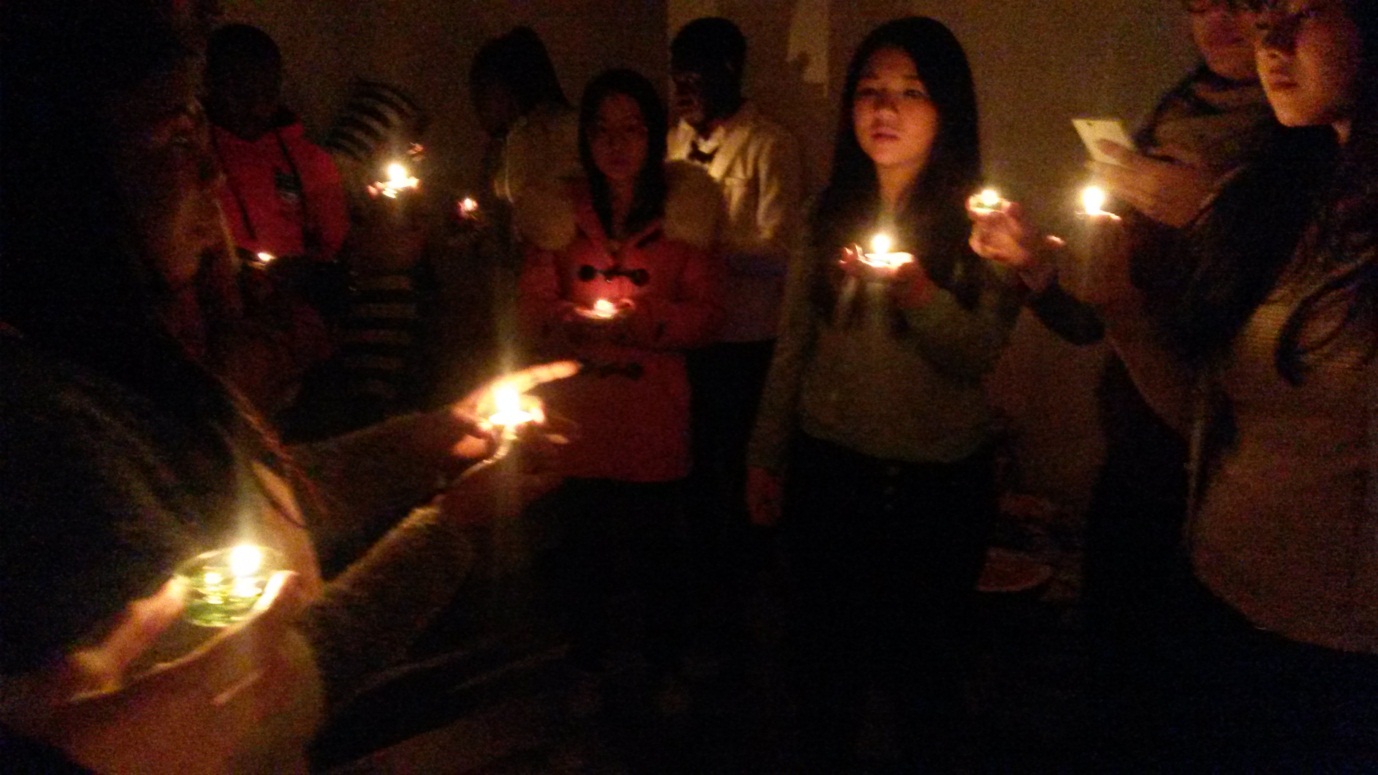PREPARATION:
The few weeks before departure were very busy and rather stressful for several reasons. Trying to sort out travel arrangements; including VISA, bank, flight, accommodation and university residence arrangements on top of trying to complete academic work was challenging. My applications to Xiamen were also not received on the first and second attempt, before it was received on the third attempt quite near to the planned departure date. Due to application problems, my admission letter also arrived beyond the expected time, which caused a delay for my Visa application. These experiences taught me that extensive planning goes into an exchange programme and that timing is quite crucial. Moreover, regarding such matters, I learnt that it is better to do things in advance to make room for unforeseen complications.
Besides those challenges, I also had financial concerns. However, arranging things as a class and with my Xiamen partner (Wilma) made things a little bit easier; it reduced the load that I personally had to focus on. Moreover, I was very blessed to receive the financial support I received, because without it I would not be able to complete my degree.
ARRIVAL:
We arrived in Xiamen on the 12th of September, Friday evening. It was extremely humid. We stayed in the Supa 8 Hotel and it was quite pleasant in general. Registration the following day was quite hectic. Wilma and I had to separate that day due to some registration confusion; I went to Xiang’An Campus and she remained at Siming Campus, though we were both meant to go to Xiang’An Campus to register. There were a few people who I met on the way who were very helpful, assisting me with buying a Chinese sim card, opening a bank account and showing me where to go to catch a bus to the other campus.
REGISTRATION:
Registration was quite tricky, but it allowed me to make use of the Chinese skills I had. I was not too sure how payment worked, because there were different messages being exchanged between Xiamen University and Stellenbosch University. However, I was kindly given few days to sort out payment, because I did not have the full amount of money to pay registration fees.
SETTLING IN:
After travelling and paying the registration fees, things became a little bit more relaxed. On Monday, which was the 15th September, we had our placement tests. We began our classes on Thursday. Within the first two weeks, I learnt where some of the campus facilities are: the nearby dormitory canteen, the small campus shop as well as multiple routes students can use to get to class. I met a few more people that study at this campus, including international students and Chinese students. It was quite nice to meet people from different parts of the world.
THE ORIENTATION:
We did not receive an orientation as such. We also did not receive a tour of the campus, which in my opinion is not a bad thing, because this campus is very big and it was also very humid and hot, so it would not have been pleasant. However, we did gather into a hall to listen to several speeches which gave us an introduction to the University.
ACADEMIC EXPERIENCE:
My academic experience at Xiamen has been challenging, yet eye-opening. I am currently taking three classes at the Intermediate level: a grammar class, listening class and speaking class.
The academic approach at Xiamen is quite different to Stellenbosch’s academic approach. To be specific, the classes at Xiamen are predominantly taught in Chinese. As a result, my listening and comprehensive skills have improved since the semester began, yet not without the help of Wilma. Moreover, in my Intermediate class (there are a few classes), the focus is on improving language skills. In other words, there are no essays or other long passages of writing. Rather, students are given shorter grammar exercises to test their language ability and comprehension. This approach allows students to focus on the way they use vocabulary and grammar. In addition, students are taught in detail about the radicals within Chinese characters and the specific functions of words. This is also done at Stellenbosch, but not to the same degree. However, I do think the methods used at Stellenbosch- particularly essay writing- prepares students to habitually practise characters. So when students from Stellenbosch come to Xiamen to study Chinese, they can focus on language use and not struggle as much with writing characters.
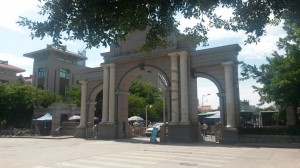
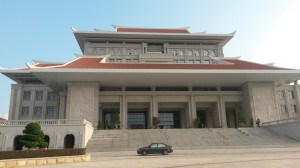
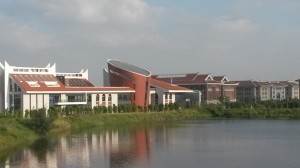
CULTURAL ADJUSTMENT:
In my class, apart from South Africa there are students from the Philippines, Poland, Russia, South Korea, Germany, Armenia, Barbados and the US. Although quite diverse, I have not discovered any major cultural differences, because people more or less stick to their own country mates. However, I have found that students appear to be more laid back in their approach to class attendance. Similarly to Stellenbosch, there appears to be ‘technology culture’ and ‘student culture’, except the languages of communication are more diverse. Compared to Stellenbosch, I feel that the party culture is not as big at Xiang’An campus, because the distance one needs to travel for entertainment purposes is a bit more than students bargain for. Most facilities and entertainment centres are at the other campus. Moreover, campus is quite quiet over the weekends.
In Xiamen, because there are fewer foreigners than in other provinces, Chinese people are either shocked or excited when encountering foreigners. On the more positive side, I heard that at Siming Campus, Chinese people would often ask to take pictures with foreigners or take pictures of foreigners at a distance. However, this is not common at Xiang’An Campus, because most of the overseas students study there and are seen in the same light as other students. On the other hand, some overseas students have experienced negative attention from Chinese people, which have made them feel unwelcome in the country.
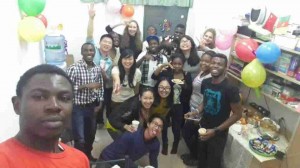
I had to adjust to the food culture. Xiang’An canteens have more or less the same cuisine every day, where rice and noodles are the staple foods. Some of the dishes are really enjoyable, some of them are new and interesting, but after a short while, I found that I needed to either change canteens or at least food choice in order to experience variety. I learnt that Chinese in South Africa and Chinese food in China is quite different. After all, they have to cater to the African taste buds.
I definitely had to adjust to the rules about religion. I learnt that South Africa really has a lot of room for religious expression, whereas in China, the rules are quite rigid and a person can undergo harsh consequences if he or she does not abide by those rules. A law officer gave us the rules about religious expression at our first assembly for overseas students. It was quite shocking to me, but at the same time, I know China has had more severe policies in the past.
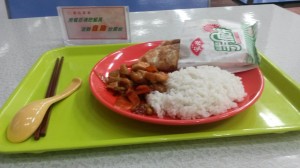
PERSONAL GROWTH:
I have learnt more about my strengths and weaknesses over these past few months. I have struggled with many things, but in particular, one of my struggles is learning to overcome the language barrier. I took it for granted that in South Africa, even if English was not somebody’s first language, they could usually understand it to some degree. Most Chinese people at Xiang’An Campus can only communicate in Chinese. Solving simple problems and doing daily tasks has become more complicated. Yet, of course going through these problems aids me in my Chinese learning, because I learn how to deal with problems in Chinese. Living in another country will automatically bring new challenges, regardless of form. Living in China has taught me to be a little more bold and thick-skinned regarding judgement from other people..
CHECK OUT ARRANGEMENTS:
Before leaving Xiang’An campus, we had to fill out a Dorm Check-out Application form, which we fetched from Xiang’An’s International Office. We brought our form, passport, air-conditioner remote, deposit slip (which we received at the start of the semester), dorm and room keys to our dormitory’s Service Department Office. We also had to return the deposit slip to another dormitory’s office in order to receive a deposit back. This of course had to be done during office hours, regardless of when you leave.
Xiang’An kindly offered free transport for students going to the train station and airport. In order to get a place on the bus, Wilma and I had to book a place on the bus in the International Office before a specific deadline.
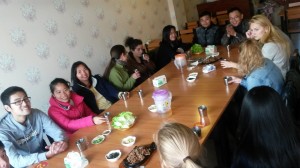
OVERALL EXPERIENCES:
I feel that my stay at Xiamen University was generally a learning experience. I learnt more about myself, my strengths and weaknesses, my likes and dislikes. From an academic perspective, I learnt that it is very helpful to revise in pairs on a regular basis, rather than revise independently and less frequently. From an accommodation perspective, I also learnt that it is more convenient to discuss the ground rules for living with your dorm mates right at the beginning, in order to establish a healthy living pattern. If this is not done as soon as possible, then unnecessary conflict may arise and the living space may be an uncomfortable place to live in. Although this may be an obvious fact, I also learnt that planning ahead is quite helpful, especially in a culture and institution which is very different to my own. Flexibility was another lesson I learnt. Since a lot of circumstances arose and I came into contact with multiple cultures, I learnt to be a bit more flexible in order to adapt to my surroundings.
SETTLING BACK IN SA:
Coming back to South Africa was in one way simple, in another way difficult. I was sad to part with people with whom I had made friends with, but on the other hand, I was ready to come back. The semester in China was an eye-opening experience and my Chinese communication skills certainly improved, but to catch-up with my family and friends in South Africa was much needed. I do not consider this my ‘old life’, but rather another season in my life where there are different challenges and adventures to experience.

